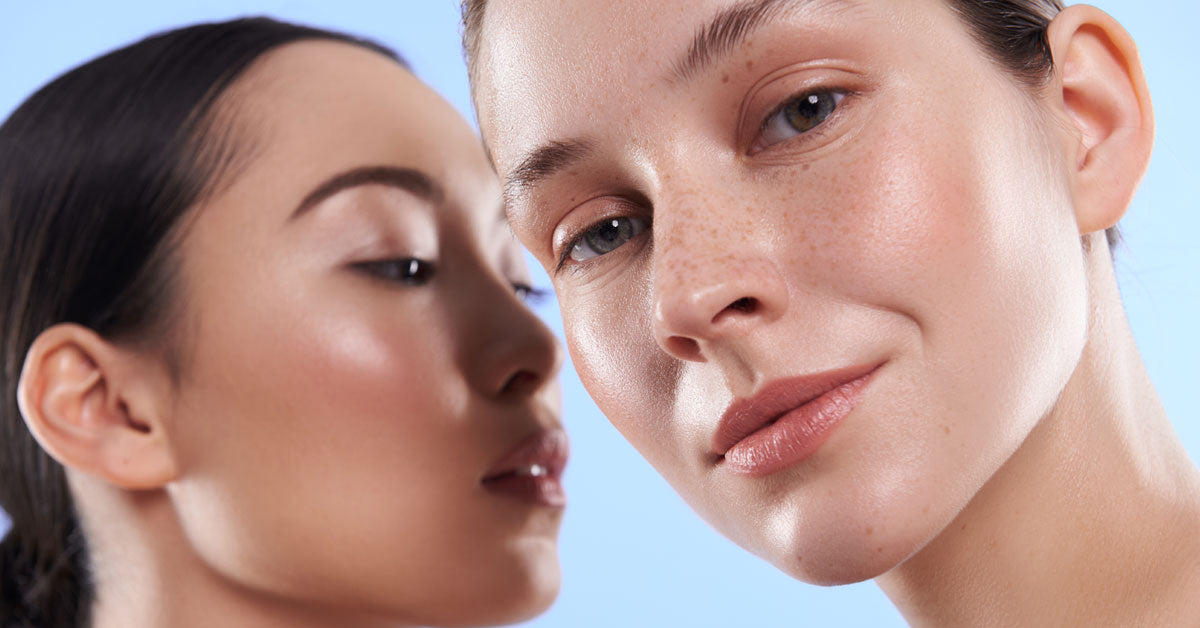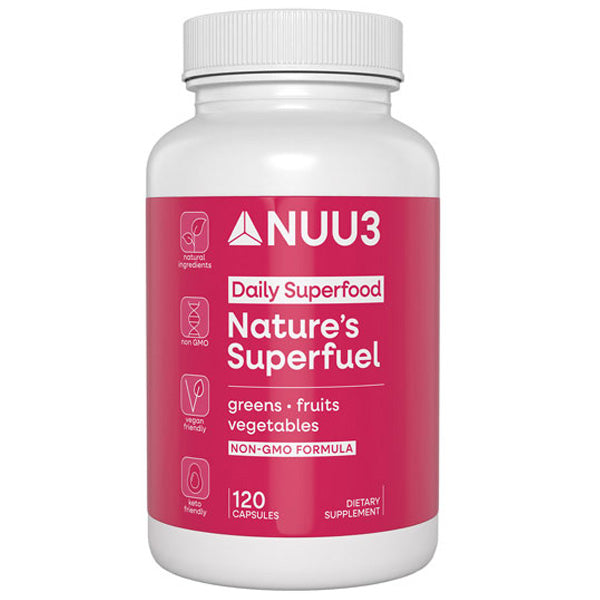Benefits of Zinc for the Skin and How They Can Be Obtained

Zinc supports immune function; aids wound healing, and promote skin health. It plays a vital role in DNA synthesis, helps regulate oil production for acne prevention, and acts as an antioxidant. Understanding zinc benefits and what it does for the skin is important to ensure optimum health.
What is Zinc?
Although required in small amounts, zinc is a crucial element[1] and essential for various biological functions throughout the body. From aiding in the functions of the immune system to wound healing, and DNA synthesis, zinc plays a pivotal role in keeping the body functioning. Zinc is important for maintaining our senses including vision, taste, and smell sensations[2]. Zinc also benefits the skin with adequate consumption. This mineral can easily be found in foods like meat, dairy, nuts, whole grains, and legumes.
On the one hand, zinc deficiency can lead to a variety of issues including impaired growth, weakened immune response, delayed wound healing, and even skin conditions. On the other hand, excessive intake can cause toxicity. Maintaining an adequate level of zinc through a balanced diet is crucial for supporting overall health and well-being.
What are the Benefits of Zinc?
Zinc plays a crucial role in numerous functions[3] within the body.
-
Immune System Support: Zinc is vital for the proper functioning of the immune system. It helps in the development and activation of immune cells and is crucial in defending the body against infections. Some studies show that zinc blocks the cold-causing virus and shortens the symptoms.
-
Wound Healing: Zinc is a major factor involved in the process of wound healing[4] and tissue repair. It contributes to cell division and the synthesis of proteins necessary for the regeneration of tissues. Low levels of zinc lead to delays in wound healing which can lead to the development of infections or even reinjection’s.
-
Sense of Taste and Smell: Zinc is important for the proper functioning of taste and smell receptors. Deficiency can lead to a reduced ability to taste and smell.
-
Eye Health: The retina contains a high amount of zinc[5] and there it plays a vital role in preventing cell damage. Furthermore, it may help delay the progress of age-related macular degeneration and vision loss.
-
Skin Health: There is research that suggests zinc may be useful in helping with certain skin disorders[6]. Acne vulgaris, atopic dermatitis, and diaper dermatitis are all conditions in which zinc may be helpful.
Why is Zinc Good for the Skin?
There are numerous zinc benefits for the skin. Its involvement in several essential physiological processes contributes to skin health. Wound healing is a huge benefit that zinc provides as it is an element that is essential for tissue repair. It helps in the synthesis of proteins and DNA, which are essential for the regeneration of skin cells and the formation of new tissue. Zinc also exhibits anti-inflammatory properties, which can help reduce inflammation and redness associated with various skin conditions, including acne and eczema. The antioxidant properties help to neutralize free radicals that damage skin cells and contribute to premature aging which can overall aid in maintaining a youthful appearance.
What are Other Zinc Benefits for Skin and Health?
There are a multitude of benefits that zinc can provide for both skin and overall health.
-
Sun Protection: UV rays can cause free radical damage to the skin like photoaging. Zinc oxide, a form of zinc, is commonly used in sunscreens and it provides broad-spectrum protection against both UVA and UVB rays, helping to prevent sunburn and other forms of sun damage.
-
Reduces excess sebum and acne: Oil, dirt, and bacteria build up in the skin pores thus causing acne. Zinc has anti-inflammatory and antibacterial properties that can reduce acne breakouts. It also regulates the production of sebum and male hormones that are found to cause acne.
-
Reduces hair loss: Zinc deficiency has been associated with hair loss, and adequate zinc levels can support hair growth and prevent hair thinning.
-
Controls dandruff: Zinc possesses antibacterial, antifungal, and other antimicrobial characteristics that help treat the cause that forms dandruff.
-
Reduces hyperpigmentation: Higher amounts of melanin lead to darkening of the skin and uneven skin tone. Zinc reduces hyperpigmentation by inhibiting melanin-stimulating factors.
-
Anti-aging effects: As an antioxidant, zinc helps combat free radicals, contributing to the prevention of premature aging and the formation of wrinkles.
-
Improved Skin Texture: Zinc supports the renewal of skin cells, contributing to a smoother and healthier skin texture.
-
Fights Infections: Zinc has antimicrobial properties that can help combat various skin infections, supporting overall skin health.
What are the Signs of Zinc Deficiency?
Zinc deficiency can manifest through various signs and symptoms. If you experience any of these symptoms, consult a healthcare provider to address your lack of zinc.
-
Impaired immune function: More susceptible to infections and illnesses.
-
Delayed wound healing: Slow or impaired healing of wounds and injuries.
-
Aggravated skin conditions: Dry skin, eczema, acne, or other skin disorders.
-
Hair loss: Thinning of hair or development of bald spots.
-
Changes in taste and smell: Reduced ability to taste and smell.
-
Eye and Vision Issues: Night blindness or other vision problems.
-
Growth and Development Issues: Delayed growth in children.
-
Loss of Appetite: A decreased sense of taste that leads to reduced appetite.
-
Neurological Symptoms: Difficulty concentrating, memory issues, and mood changes.
How do you Know You are getting enough Zinc in the Diet?
Balancing zinc intake through a combination of dietary sources and, if needed, supplements can help ensure adequate levels for good skin and overall health. There are a few ways to incorporate zinc into your diet.
Eat Zinc-rich Foods[7].
- Oysters: Rich in zinc, oysters are a highly effective source of this essential mineral.
- Animal Protein: Include beef, liver, lamb, and poultry in your diet for bioavailable zinc.
- Dairy Products: Milk, cheese, and eggs provide zinc, especially for non-meat eaters.
- Shellfish: Apart from oysters, other shellfish like crab and shrimp are good zinc sources.
- Cereals: Opt for zinc-fortified cereals, and include whole grains like wheat and oats.
- Nuts: Cashews, almonds, and other nuts contribute to zinc intake.
Consider a Zinc Supplement.
NUU3 Hair, Skin & Nails Gummies and Nuu3 Daily Multivitamin Gummies contains zinc as one of the main ingredients that helps to promote collagen, enhance skin elasticity, and strengthen hair, skin, and nails. Consult with a healthcare professional, especially a pharmacist before starting to determine the best zinc supplements. Finally, follow dosage guidelines to adhere to the recommended dosages provided on the product label to prevent potential adverse effects. Nuu3 Nature’s Superfuel also contains other fruits and veggies that are rich in zinc.
FAQ
How long does it take for zinc to work?
The time it takes for zinc to exhibit noticeable effects will vary depending on the specific health conditions. For acute issues like cold symptoms, zinc supplements may show some benefits within a few days. However, for skin enhancement or hair growth, visible changes may take weeks to months due to the nature and time duration of cellular processes. Consistent, long-term intake is crucial for sustained results. Individual factors like health, diet, and the presence of underlying conditions will also influence the timeline. Consulting with a healthcare professional can provide a personalized insight into the expected time based on specific health goals.
When should I take zinc in the morning or night?
The timing of zinc intake can depend on individual preferences and health considerations. Some people choose to take zinc supplements with food to minimize potential stomach upset. However, others prefer taking it on an empty stomach to enhance absorption. Taking zinc at night might be convenient for those who have a routine of taking supplements before bedtime. It's essential to avoid consuming zinc alongside calcium-containing foods or supplements, as they can interfere with absorption. Ultimately, consistency in timing and adherence to recommended dosages will be key. Try consulting with a pharmacist to help guide you on when to take zinc.
Who should not take zinc?
Although zinc is an essential nutrient[8] needed for the body to function, zinc supplementation may not be best for everyone especially if consumed in higher than normal amounts or suffering from other diseases. People with chronic conditions such as kidney disease, stomach surgery, or other issues that would put them at risk of copper deficiency should be mindful, as excessive zinc intake can cause copper levels to decline.
Additionally, individuals on certain medications, like antibiotics or diuretics, may experience interactions with zinc supplements. Pregnant or breastfeeding women should follow healthcare provider recommendations, as a high amount of zinc intake can be harmful to the developing fetus. It's crucial to seek advice from a healthcare professional before supplementing with zinc, especially for those with pre-existing health conditions or if taking medications.Takeaway
Zinc is a vital micronutrient with diverse benefits ranging from immune function and skin health to wound healing and eye health. Ensuring an adequate intake through a balanced diet rich in zinc-containing foods is crucial. While supplements can be an option, they should be approached with caution and under the guidance of a healthcare professional to prevent potential interactions or excess intake. Prioritizing a holistic approach to nutrition and finding the best supplements can ensure that you are harnessing the benefits of zinc for optimal health.
References
1] ↑ https://www.sciencedirect.com/science/article/abs/pii/B9780128190968000689
2] ↑ https://pubmed.ncbi.nlm.nih.gov/6349457/
3] ↑ https://www.medicalnewstoday.com/articles/263176#11-benefits
4] ↑https://www.ncbi.nlm.nih.gov/pmc/articles/PMC5793244/
5] ↑ https://ods.od.nih.gov/factsheets/Zinc-HealthProfessional/
6] ↑ https://pubmed.ncbi.nlm.nih.gov/29193602/
7] ↑ https://www.glowday.com/blog/heavy-metal-the-benefits-of-zinc
8] ↑ https://www.nebraskamed.com/primary-care/are-zinc-supplements-safe-what-you-need-to-know-before-taking-them#













